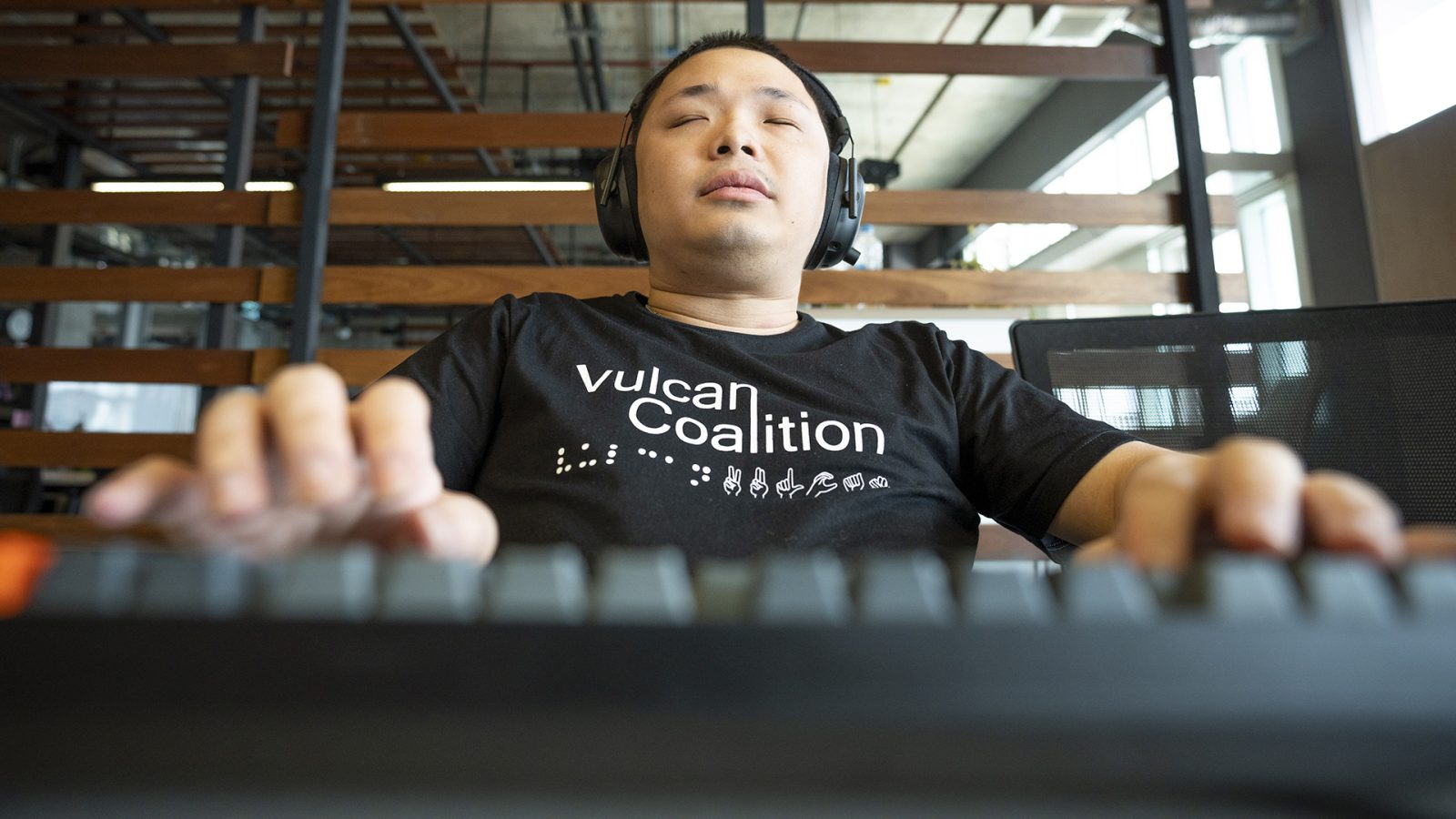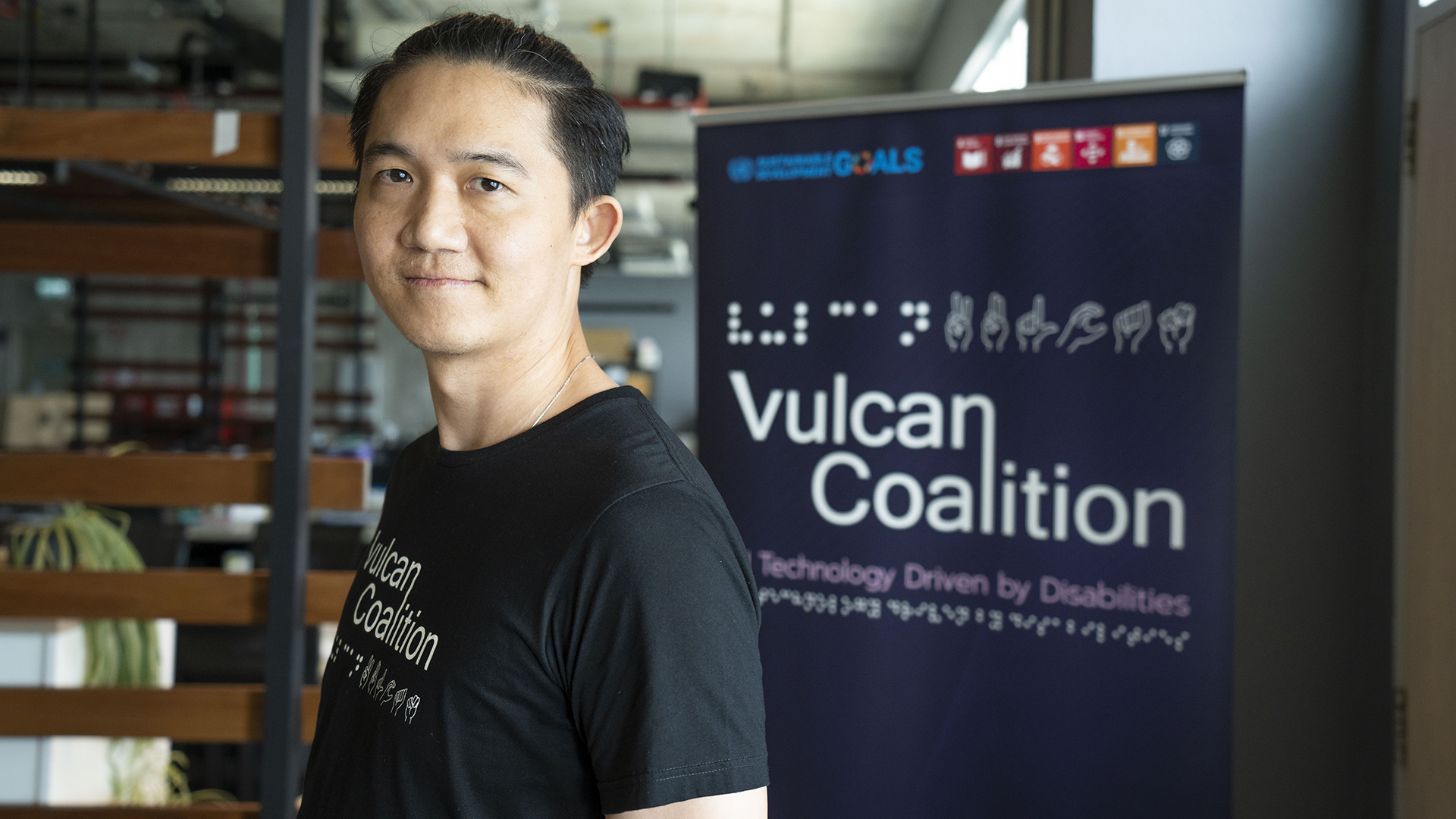
Vulcan Coalition helps people with disabilities train for AI jobs
In Thailand, there are more than 1.7 million people with disabilities, but only 30 percent of them have a job. That’s an issue Methawee Thatsanasateankit thought she could help solve.
Thatsanasateankit co-founded Vulcan Coalition in 2020 with the objective of both developing new AI services in Thai language and improving the quality of life of people with disabilities.
According to neuroscience studies, some individuals who are blind or deaf have heightened perceptions that allow them to compensate for their sensory loss.
“We learned that people with disabilities almost have a superpower,” Thatsanasateankit said. “So, we saw an opportunity to match them to this type of work.”
That combination would assist a major problem in Thailand, where the startup is based: a lack of workers capable of labeling the large amounts of data being produced in Thai language.
Data labeling involves identifying raw data, like audio files or videos, and adding informative labels for context. This allows a machine learning model to learn from the data, which enables apps like chatbots and voice recognition services.
Thatsanasateankit and fellow co-founder Niran Pravithana developed a curriculum they could present to the Thai government to show that people with disabilities could perform well as data labelers through this reskilling effort. Vulcan partnered with the Ministry of Social Development and Human Security to educate 2,000 people in data labeling. The Vulcan Academy portal serves as a training and testing tool for potential candidates.

“When we first told people that we would like to employ them as data labelers, they were a little bit scared because it was out of their comfort zone,” Thatsanasateankit said. “People have told them that they couldn’t do many types of work. We had to convince them to take the course. But now it’s something they can be proud of because they can tell other people they do this high-value job.”
Punnaphoj Aeuepalisa is a blind senior software engineer at Vulcan Coalition. He helped create the platform used by individuals to label data through speech-to-text and other processes, and is a key voice in how the company is developing AI programs moving forward.
“I have had an interest in computer science since I was a child,” Aeuepalisa said. “I enrolled at university in the computer engineering department. After graduation, I met the chief research officer at Vulcan and he told me he’d like to form an engineering department of people with disabilities. So, I joined the team and we do many products and platforms using our system. There are also many projects we are doing in collaboration with outside organizations.”
Microsoft’s global mission to empower every person and every organization to achieve more took root in the worldwide AI for Good program, which brings the full technological capabilities of the Microsoft Cloud and AI platforms to make the world more sustainable and accessible to everyone.
Not only was Vulcan Coalition recognized by Microsoft for its steps in AI for Accessibility, it also won the Thailand Virtual Hackathon for a hardware and software solution that automized health and check-in processes for visitors with disabilities, including automatic visual detections of masks powered by AI on the Microsoft Cloud.
The Vulcan team utilized its deaf members to label and train AI using visual data in the Vulcan Data Labeling Platform. The company earned a USD 25,000 grant and rewards aimed at further supporting the project’s development, including mentoring and support for an AI for Good grant application and fast-tracked listing on the Microsoft Azure Marketplace.
“Without Microsoft’s help, it would be harder for a small startup like us to be recognized by larger companies,” Thatsanasateankit said.

Now, Vulcan Coalition is working with banks, human resource and home automation companies to create chatbots, AI processes and models for use across the country. Approximately 30 percent of revenue from Vulcan’s AI service will be shared with the staff to support their long-term sustainability.
In Thailand, a company must hire one employee with a disability for every 100 employees. In some cases, Vulcan said companies simply pay the money to the individuals and don’t offer a real work opportunity.
For Vulcan, it partners with companies who are eager to utilize skilled workers. The company estimates that within two years of the program’s start, it will have matched 600 people with disabilities into AI jobs. For the workers, it offers them a dignified source of income apart from getting trained in high-demand tech skills.
“Our workforce has been very intrigued about our project. They want to know how it’s going and how our work can be used in the future,” Aeuepalisa said. “They are very interested and very proud of what they are doing.”
Top image: Punnaphoj Aeuepalisa, a senior software engineer at Vulcan Coalition, helped create a platform to label data through speech-to-text and other processes. Photo by Adryel Talamantes for Microsoft.














